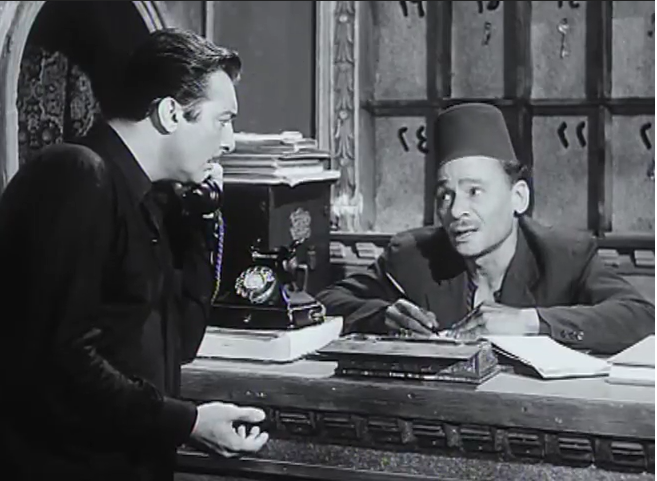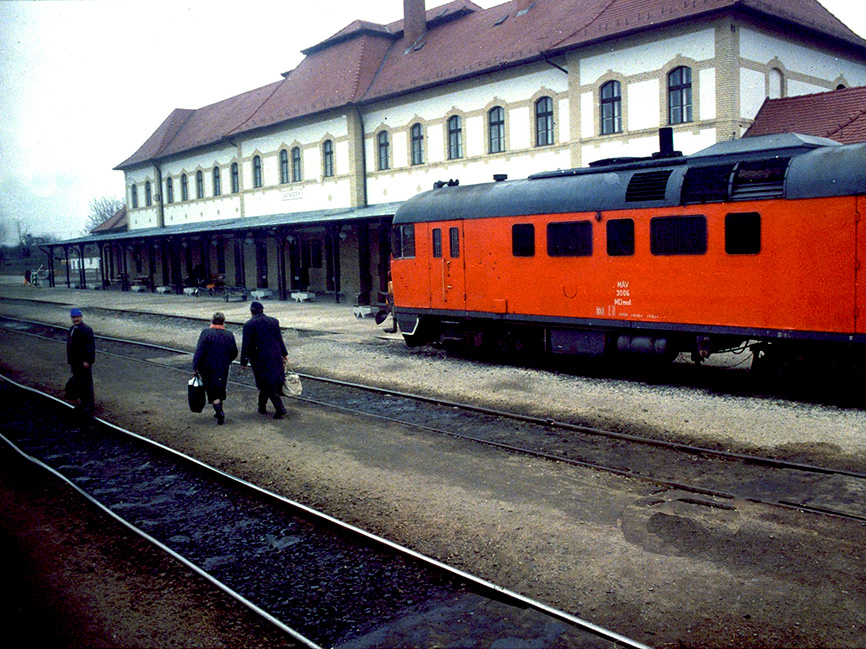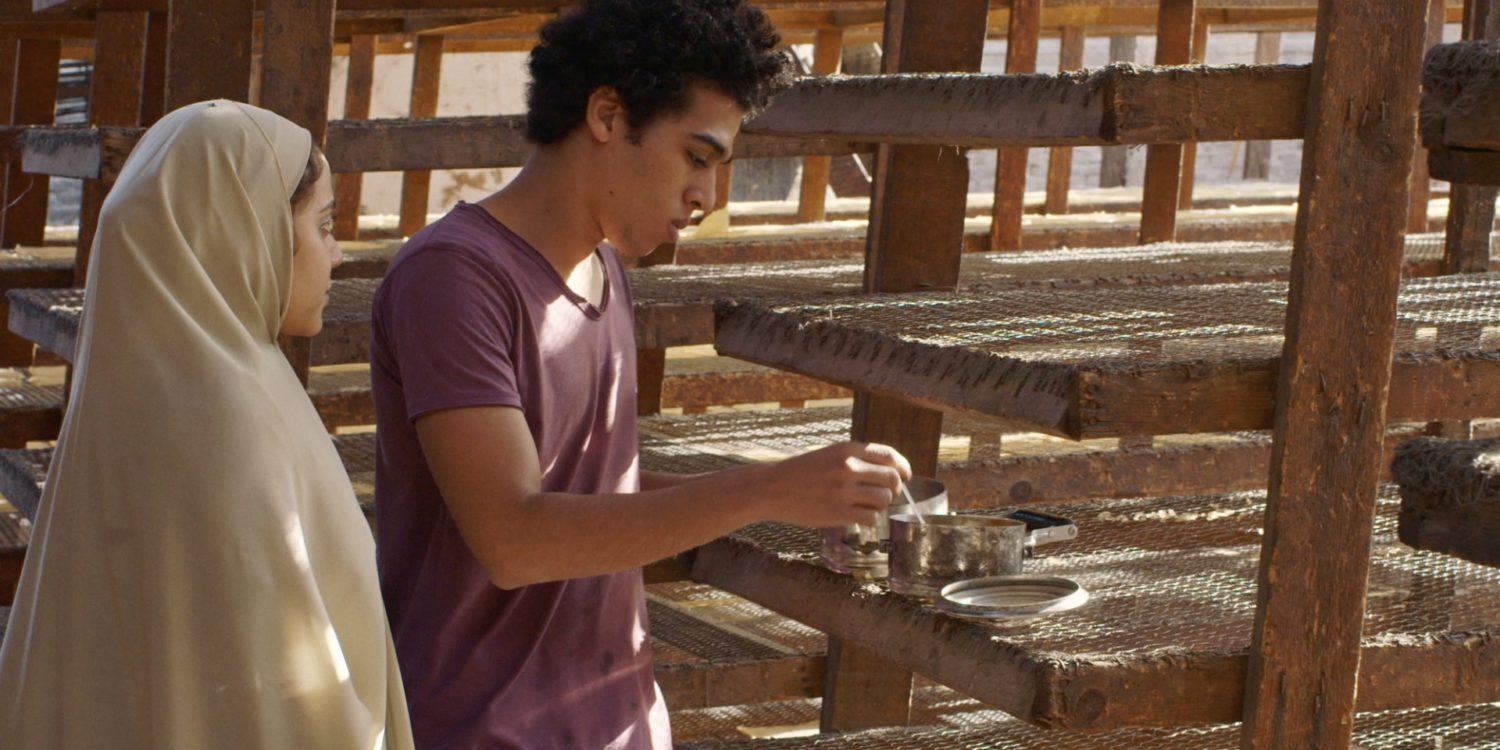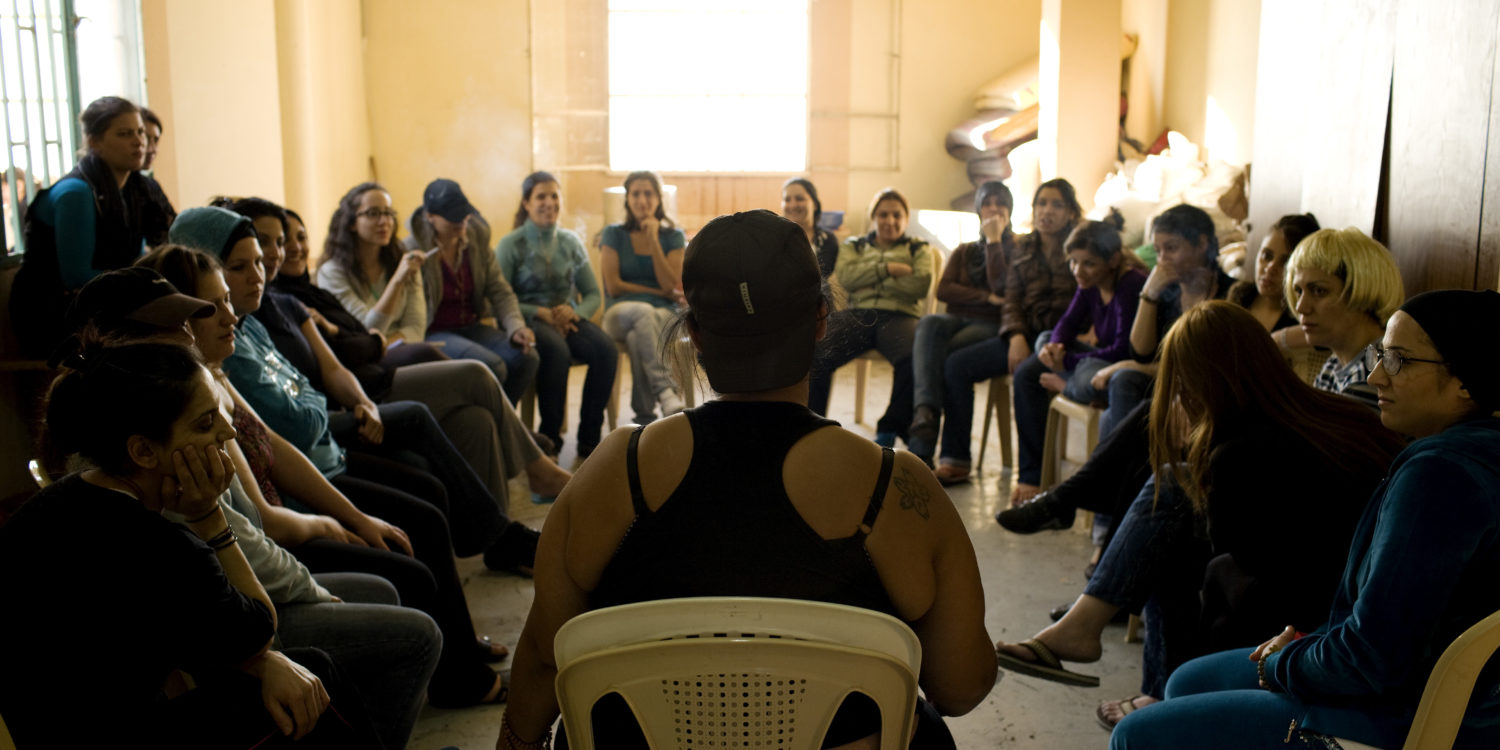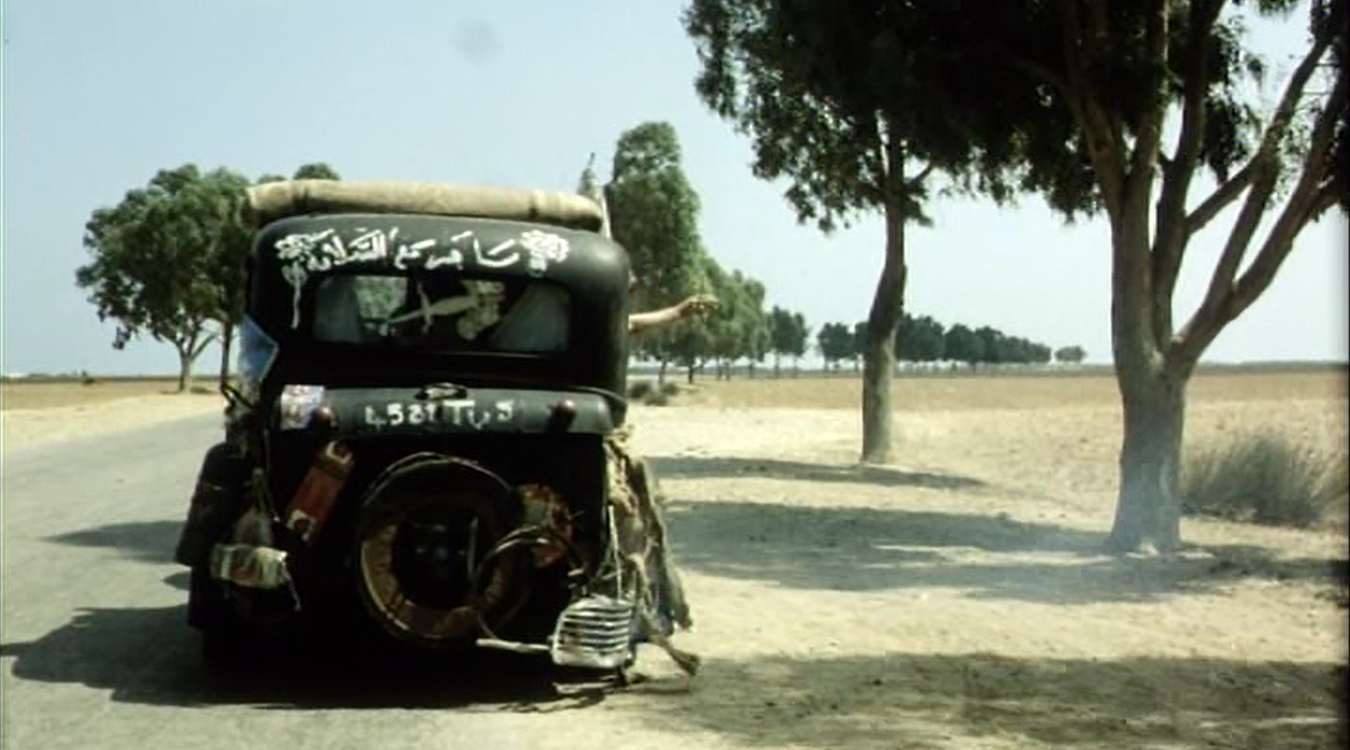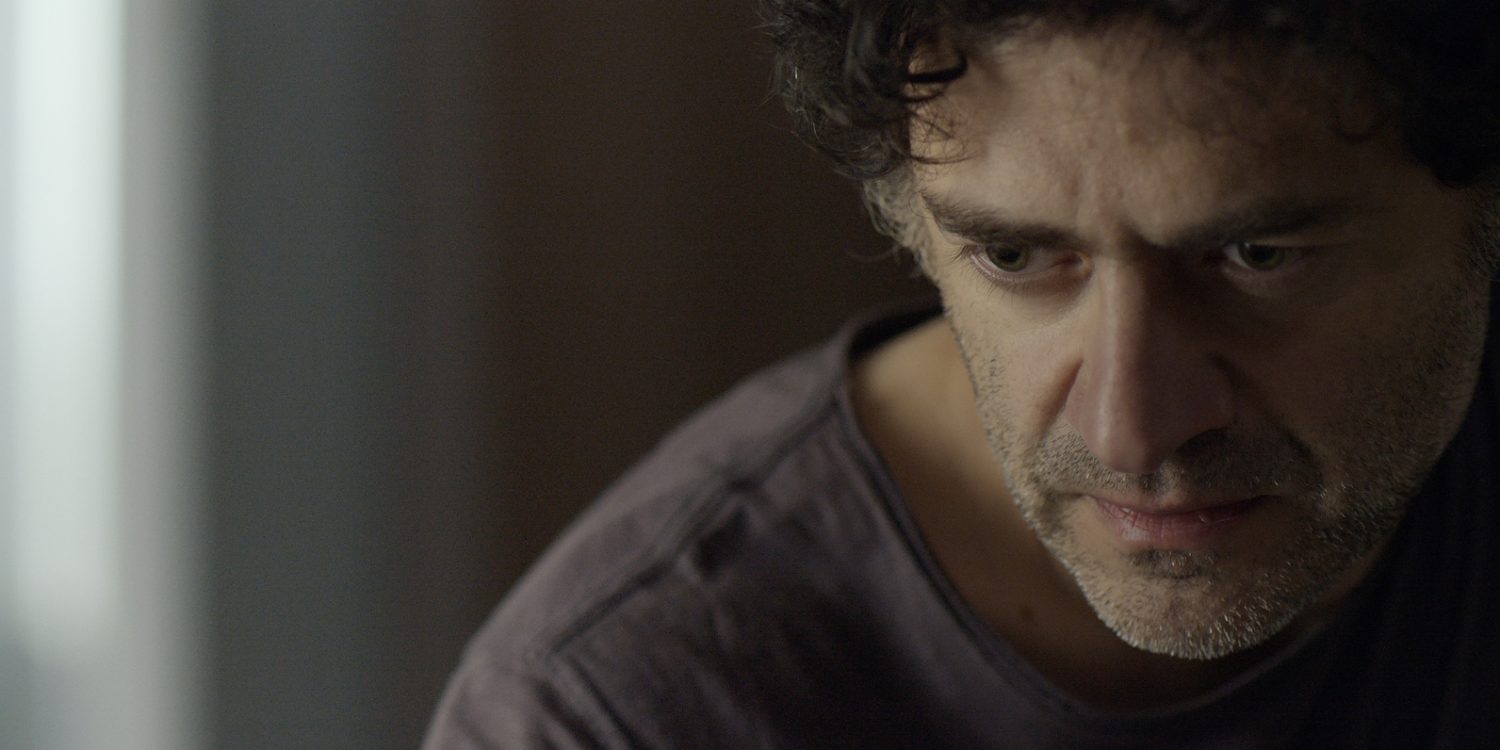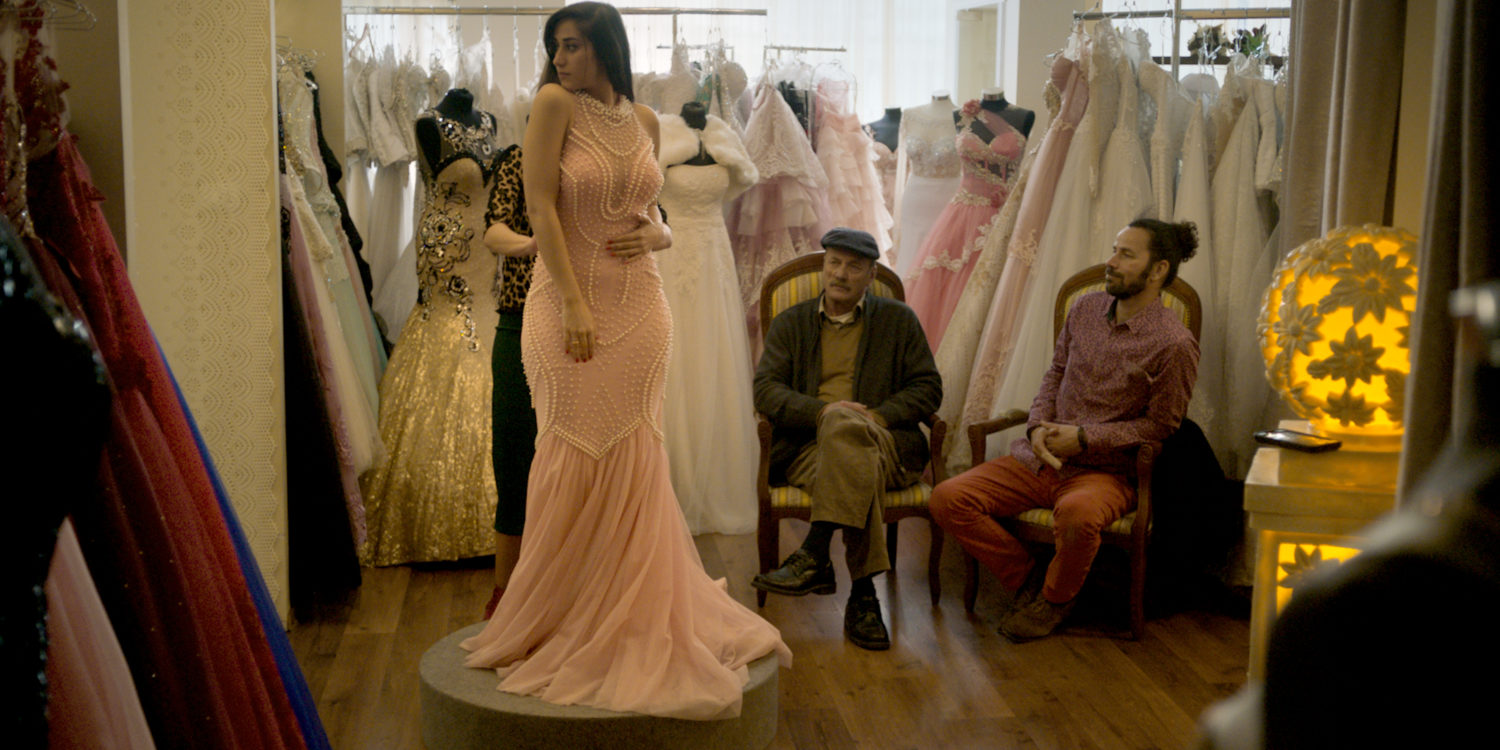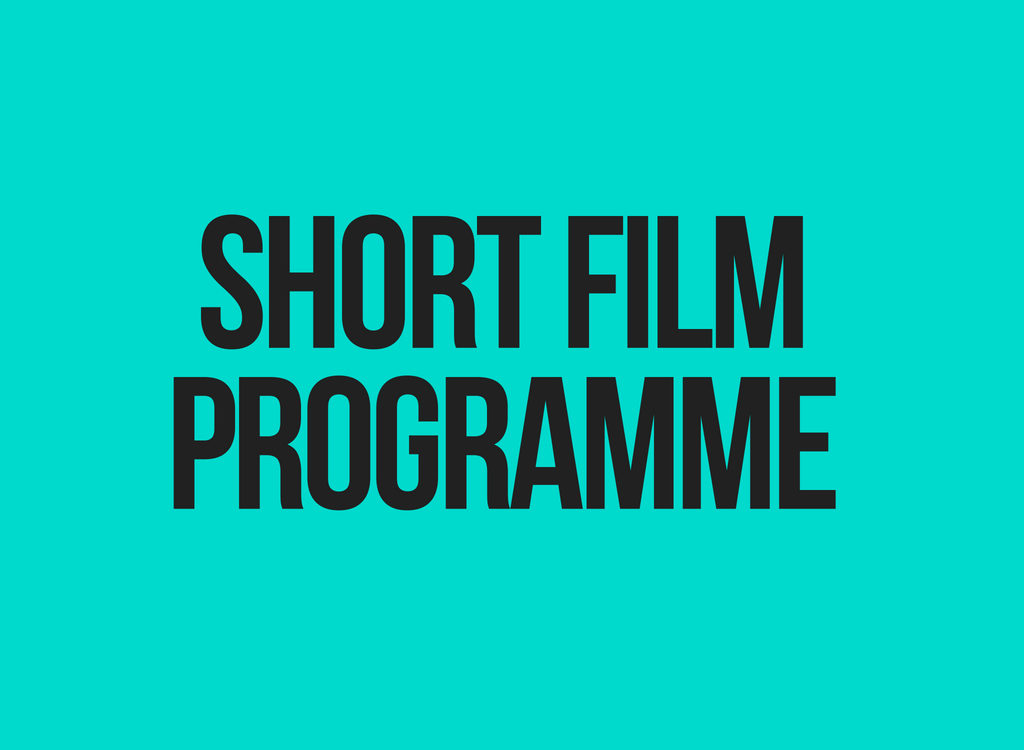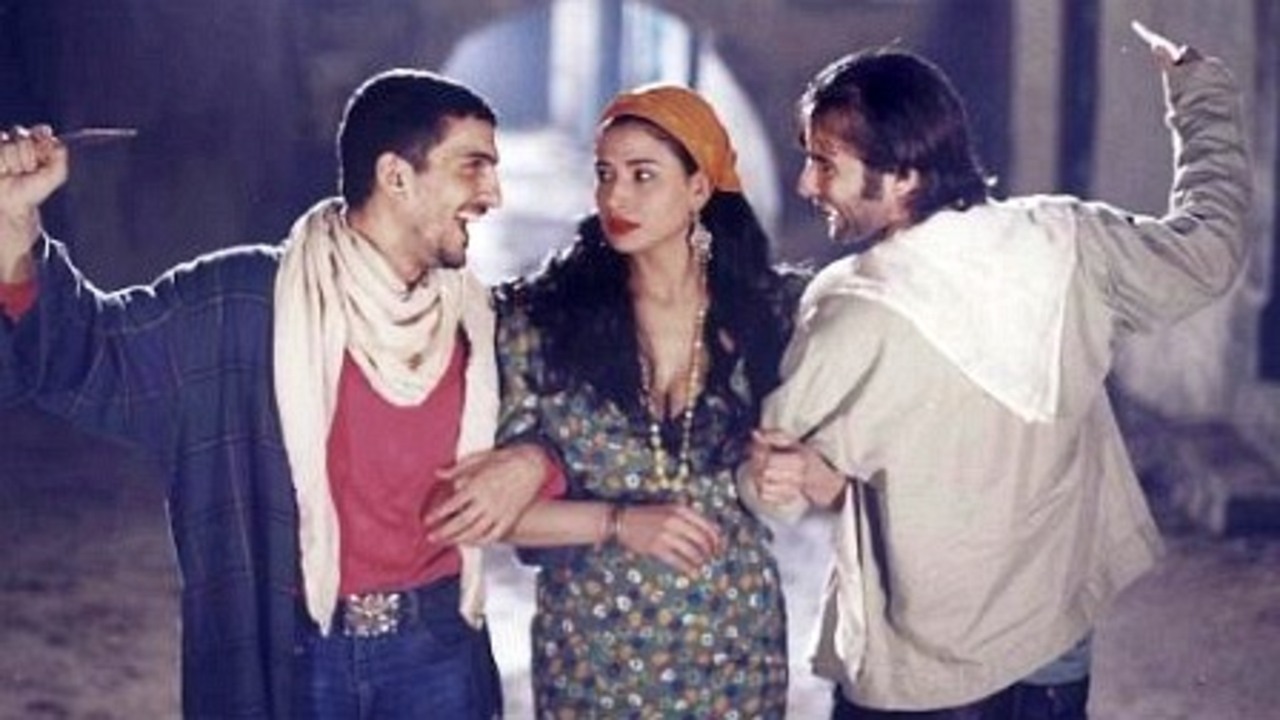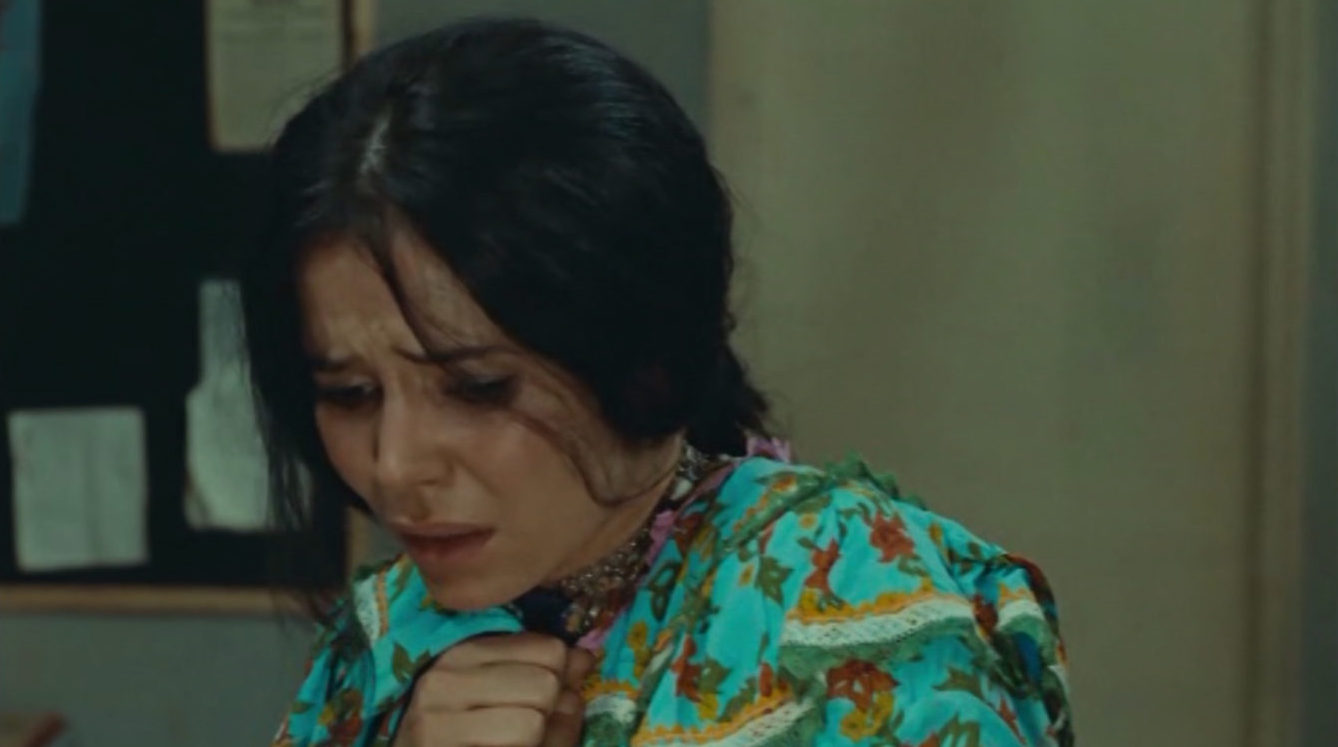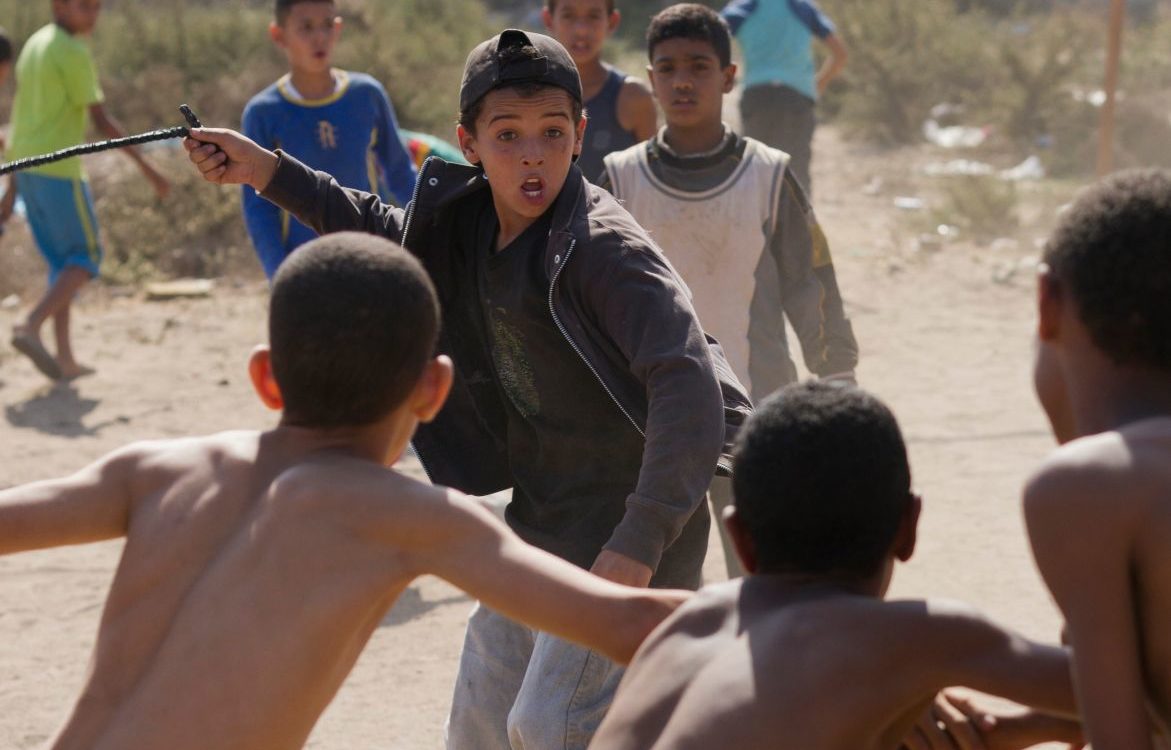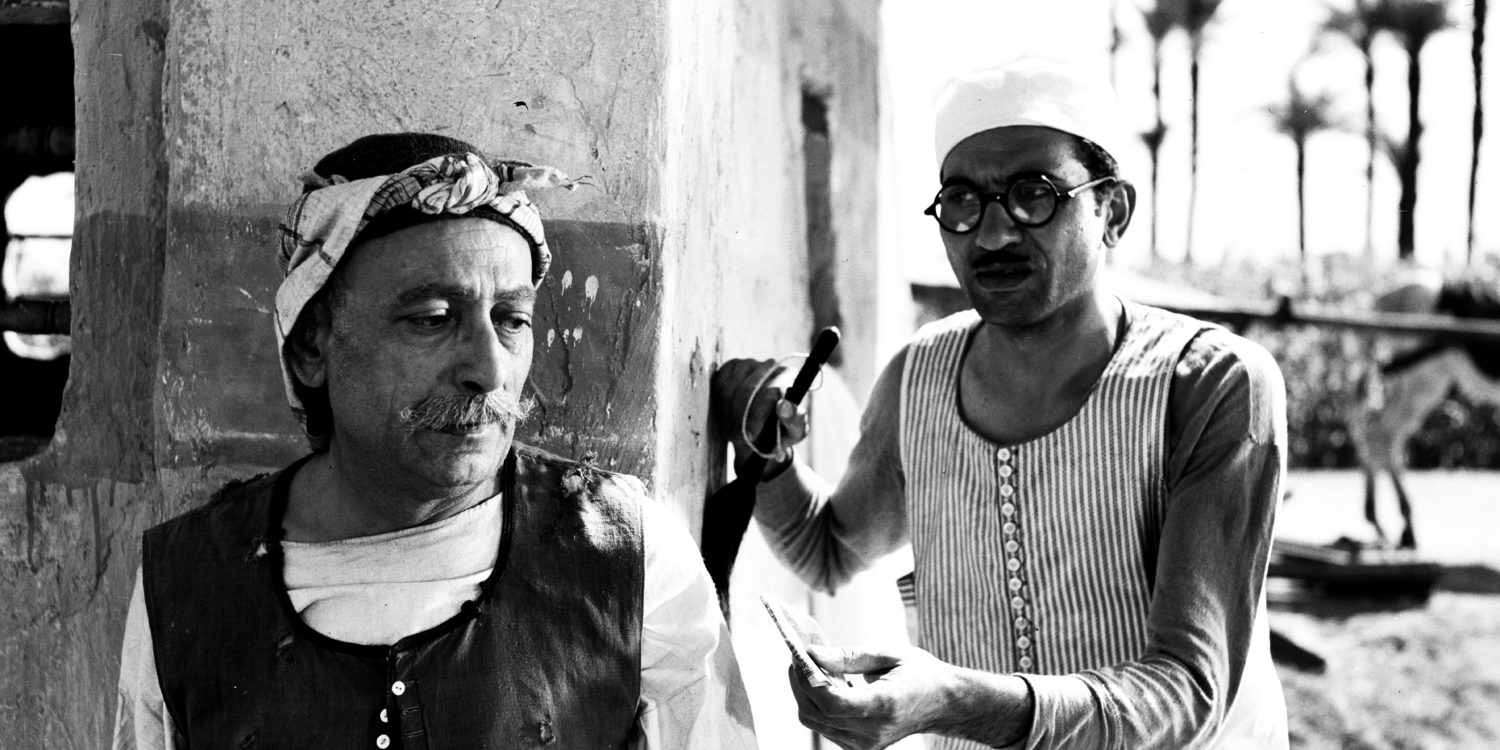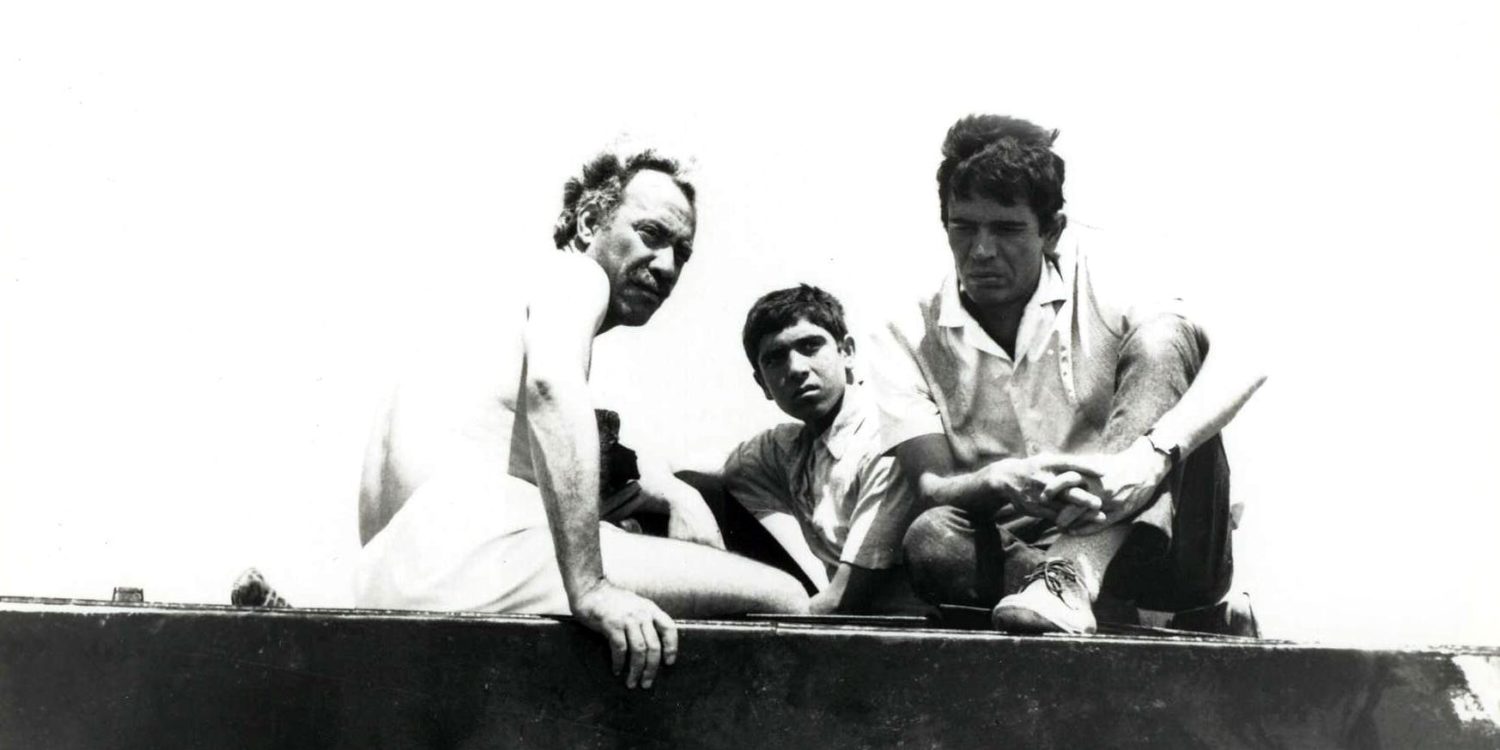Interview with Joseph Fahim about SAFAR 2018 and Arab Film Heritage
SAFAR is a film festival organised by the The Arab British Centre in London, the only film festival in the UK solely focused on programming Arab cinema. It started in 2012 and aims to introduce audiences to Arab cinema, old and new (safar means travel in Arabic).
The past 3 editions mostly focused on contemporary Arab films, 2012 and 2014 editions were curated by Omar Kholeif, 2016 edition was curated by Rasha Salti.
For the 2018 edition, the festival has taken a shift with a more focused theme examining the relationship of literature and film in the Arab world. This year's edition is titled A Literary Journey Though Arab Cinema and is curated by film critic, programmer and lecturer Joseph Fahim. The program of 13 screenings includes a collection of rare classic Arab films and new films too, plus post screenings discussions.
The screenings will take place between September 13-18 at multiple venues, including ICA, Institut Francais and King's College. The complete line up, schedule and ticket details can be found here (I've added a summary at the end of this post too.)
When I asked Nadia El-Sebai, Executive Director at The Arab British Centre how did they come about the theme for this year's edition, she said the first two editions curated by Omar Kholeif "focused on popular Arab cinema, both classic and contemporary film, and the premise was looking at film that was popular with domestic audiences in the (Arab) region". The edition curated by Rasha Salti focused on "contemporary Arab cinema because there was so much new cinema coming from new voices in the region since 2011".
Since then, there have been more platforms across London for contemporary cinema from the Arab world (including the BFI London Film Festival), so for this year's edition, Nadia explained, "We decided to go a little bit deeper and see if we could find a focus that would really look at film heritage from the Arab world. We are very interested in literature, we have a library here on the premises, and we have a very good relationship with Banipal, a magazine for modern Arab literature. As it's their 20th anniversary this year we thought of a collaboration looking at literature in film, and when we had a conversation with Joseph, he had a lot of enthusiasm for the topic and excellent ideas. From that point on, he developed the theme to what we see today, which is beyond what we could’ve imagined and really pleased with how it turned out."
I interviewed Joseph Fahim over the phone to ask him more about the film program, especially the rarely seen Arab films on the big screen. The following is our conversation, which has been edited for clarity:
Congratulations on curating this program, it's very strong and I regret that I will not be able to be in London to attend the screenings. I think my first and urgent question is how easy or difficult was it to get hold of the old films to screen at this festival? Most of these films aren't easily accessible, and I'm glad SAFAR has enabled you to get these films to show them on the big screen.
It was hell. I was working on getting these films for six months. When I worked at the Cairo International Film Festival in 2014, we did have some older Arab movies, but they were accessible to us because we were dealing directly wth the Ministry of Culture and it wasn’t a big deal at the time. I didn't realise it would be such a hassle to access old Arab films in general.
Overall, it was a mix of debilitating bureaucracy, and you have to know somebody through somebody through somebody, and filing formal letters, and getting around those things. I’ve always been conscious of the fact that we do have a real problem with archiving film. I was more conscious of it in Egypt, especially with the big tragedy that happened within the waning days of Mubarak when the Ministry of Culture sold our entire cinematic heritage to two Saudi companies, Rotana and ART, who have been exceedingly unresponsive when I approached them for the movies I wanted to have for SAFAR.
The main problem with classic Arab movies and Arab cultural institutions is that we don't have anything centralised. We don't have the equivalent of the British Film Institute in London, or Cinémathèque Française in Paris or Cineteca Bologna or the Swedish Film Institute. We don’t have an equivalent of this anywhere in the Arab world. The only place that's starting to have some kind of a cinematheque is Tunisia, but it's very early stages. I don’t think they’re doing any restorations or proper archiving, but it’s a great initiative. But like I said, it's early stages. When we tried to get the Tunisian movies, in the end it wasn’t through them because they didn’t even respond.
Although I didn’t deal with them directly because we got the movies through a French sales company, but in Morocco it seems to be things are more efficient, because there's a system in tact. Probably because of the French connection.
But everyone else, in the other countries I dealt with has been a nightmare to get these movies from.
The problem is no one is really caring about the issue of preservation and archiving. Many of the movies that we had were in really bad conditions. We wanted to have more movies and other alternatives, but we couldn’t because the quality was really bad. The astonishing thing is that the people in charge don’t realise these movies need preservation and restoration because they’re in such bad conditions, and this is across the board.
Then there are some countries that are worse than others. Like Syria for instance. Right now we don’t know what’s happening to the movies that were produced by the General Organisation of Cinema (in the 1960-70s) and as you know they produced some of the greatest Arab movies of all time. For instance, when it came to the film The Dupes from 1972, which is probably the greatest movie they ever produced, we found it first through an American distributor, but we were told the 35mm copy is on on its last legs. So we don’t know if anybody would like to screen in good conditions in the future, how would they screen it? We will screen the digital version of the film.
It is extremely depressing to hear about the difficulties of getting access to the old Arab films and you are basically confirming what I already know. I'm glad you persisted and hats off for being able to get hold of these films within six months, truly commendable effort. I think you've shown this kind of work needs persistence and patience. How do you think this problem can be solved?
It cannot be solved, the issue is Arab bureaucracy. In Egypt it's very bleak right now because I’ve dealt with Rotana and they didnt even respond. The National Film Centre is also not that easy to deal with, mainly because the decision making process is centralised.
Nothing is ever going to change unless the Arab governments realise that preserving cinematic heritage is an important endeavour, and no one is really giving a damn.
The most successful endeavour recently has been in Beirut, and that's because of private organisations and individuals. For example the film restorations of Maroun Bagdadi , Borhane Alaouié, and Ab(b)out Productions restored Georges Nasser’s 1957 film Ila Ayn, these were all private endeavours and so far these are proving to be the most effective because they are the ones who are easier to deal with and they are adamant and passionate about it.
Will any of the films at SAFAR be shown on 35mm or will they all be digital versions. I am guessing the version of Al Ard/The Land by Yousef Chahine will be the recently restored version by Misr International Films, part of the film restoration project to mark the 10th anniversary of his death.
Yes, we are hosting the world premiere of the restoration of Al Ard. Marianne Khoury from Misr International Films and Yousef Chahine's heirs have the copies of his films, so this is another example of a private endeavour that worked on restoring films. They also got Cinematheque Française involved, and Orange Egypt helped co-finance the restoration.
We might have one movie screening on 35mm, the Tunisian film, In the Land of Tararanni, but we still don’t know. Of course the others will be digital projections because first of all it's very difficult getting 35mm copies because of the various conditions they are in. Also shipping costs is a big and expensive hassle if it's not done through a cultural centre or embassy. So sadly, apart from the Tunisian film that we could screen on 35mm, the rest will be screened on various digital formats. We ended up reaching weird and unexpected sources to get these films - from finding copies through someone working for Egyptian TV, to someone who has contacts - the whole thing was so surreal. 35mm feels like a luxury now compared to how I found the other films.
I think it's an issue that there's a lack of Arab classic films in general repertory film programs and festivals, unless it is something specific that has been restored for a specific reason. Do you think the films in your program will gain interest and travel to other cities/countries since they are now available and made to be aware of?
I hope so. There is interest to take the movies at other festivals, we're in discussions but nothing is confirmed yet.
When it comes to subtitles, we were lucky to find sponsors like Barjeel Foundation to help finance subtitling The Search, Opium and the Baton, In the Land of Tararanni because they didn't have any English subtitles. Some of the older movies in the program are available for the first time and definitely lots of people have expressed interest. One can only hope it will happen.
It’s also not just about making these films available for the first time, it's also about context. It's about how the themes in this program are interweaved, we're offering some sort of rediscovery of movies that some people may have known of. They may have been available, but they may have not been seen, like Fallen Angels Paradise, which I think is one of the greatest Egyptian movies of the past 20 years that few people know of.
Context is essential and I'm sure there will be threads, connections and relationships in your program. I'm curious to know what kind of discussions will come out of the screenings.
First of all there’s the dominant theme which is the relationship between literature and film, and the different interpretations of that. Each movie is a separate case.
What’s interesting for me, and what I'm tying to do is, especially with the classic movies is try to see them in the grander scheme of contemporary cinemas and the links they have now. For me Al Ard would be fascinating because it's one of the movies with a big charge of hyper masculinity and it would be fascinating to discuss this with the writer Ahdaf Soueif in our post screening discussion to see how does it translate now. Another Egyptian film, Poisonous Roses has a very interesting adaptation of the source novel, which is one of the most influential in the 1990s. The Algerian film Opium and the Baton stood midway between the older revolutionary movies and the new ones, in the sense that it was part of the genre and an extension of all these famous movies that were made about the revolution including Mohammed Lakhdar-Hamina's movies. But it's also pointing to the sense of scepticism and doubt that would seep in and would be developed in later movies.
Also, it is not necessarily about adapting literature on screen. One of the most fascinating aspects of each film is that each country and its history with literary adaptation represents an aspect of its grander histories as well. In Egypt, the movies that were released in the 1950s was a way of eliminating the colonial influence and strengthening the Egyptian identity, and that was done through the literary adaptations.
It was the case in Morocco, Algeria, and in Algeria especially, some of the earliest movies and adaptations were also part of deconstructing the colonialist narrative. The first Algerian novel that emerged in Arabic was quite late in 1950s I think, and of course history of film adaptations was based on that, and it had different reverberations.
There are various themes I’m interested in, the histories, the connections with present cinema and of course restoration is a subject you cannot avoid. Films like The Dupes and the history of the General Organisation of Cinema and the Syrian films made at that time, and again how is that related to the Egyptian film industry of that time, and also the beginning of the Lebanese civil war, when Lebanon became a haven for Egyptian filmmakers and filmmakers every, where it was proved to be short lived. Syria emerged as an alternative for a brief period, and then the doors were closed again. So there are all of these questions and themes, and as I said every movie is a different discussion.
Will the post screening discussions be recorded and made available online? I'm certain it will be valuable to anyone interested and researching Arab cinema.
The talks at ICA will be recorded and put online, and perhaps the ones at Cine Lumiere at the French Institute too, most likely for Al Ard, because Ahdaf Soueif will be there.
Why is there a lack of screening of Arab classic films in the Arab world? Why does it need international attention or interest, or Western associated organisations that facilitate and organise such screenings and we don't see a similar interest within the Arab world. Apart from the private regional organisations that are working on preserving films, we know the old films acquired by Rotana and ART are only shown on classic movie channels on TV.
There’s great apathy from the Arab audience towards Arab film history and I think it has to do with the fact that we have a very complex relationship with our history, with Arab history.
It also has to do with education I think. That’s part of the issue, what kids are growing up with these days. It has to do with the role of culture in each country. The state of culture in the Arab world is miserable, readership rates are very low, so of course it all reflects on the fact that people are not very interested in Arab film history.
How to change that? We need to change entire eduction system, we need to enhance culture, we need to do lots of things. It's the same with why kids are not interested in old Asian movies or Balkan movies for instance. It has to do with how the general state of the culture is. The changes are not happening anytime soon. Lots of endeavours must be done. Education must be changed.
I see a growing interest in contemporary Arab movies across the region which is something very healthy and exciting. Can this be translated into older movies as well, perhaps. What can be done? More promotion, more active programming and finding ways to get a younger audience interested in Arab movies.
If you had to pick one or two films from this program as essential viewing, for someone that doesn't have time to see all the films, what would you recommend?
(Laughing) That's a difficult to answer because they’re all my babies. But the two I am super excited about are The Search and In the Land of Tararanni.
The Search because it's one of the most unique Naguib Mahfouz adaptations. It's a hardcore noir and unlike the novel of Naguib Mahfouz, which is quite religious, especially in its ending. The adaptation is very agnostic. It's the first film review I wrote when I was in college. It stirred great debate, which is more important - national duty or religious duty? It's something people do not expect to see from the Arab world, a hardcore noir, looks amazing, great performances by Rushdy Abaza, Souad Hosny and Shadia, and what an amazing cast that is. Historically, it has a very unique position, it's a reflection of the beginning of the sense of loss that was starting to seep in Egypt at that time. The sense of moral ambiguity that was starting to increase. I’m very curious to see how people will react to it. I think it's a great discovery and we went through hell to get this movie.
In the Land of Tararanni is another movie that not many people know about. It's an anthology, one of the stories was directed by Férid Boughedir who directed Halfaouine: Boy of the Terraces, one of the most famous and beloved Tunisian movies of all time. The anthology is based on a collection of short stories written by Tunisia’s most beloved and influential satirists. It's funny, the satire is very biting, it feels very fresh, it's light - we don’t have a lot of light movies in this program. I think it’s a great find, I don't think many have seen it. I didn’t know much about it, it is a great discovery, and will be a great discovery for everybody.
Below is an image summary of all the screenings. SAFAR: A Literary Journey Through Arab Cinema will take place between September 13-18 in London. Complete line up with more details can be found here. If you are in London, I strongly recommend you go to this.


